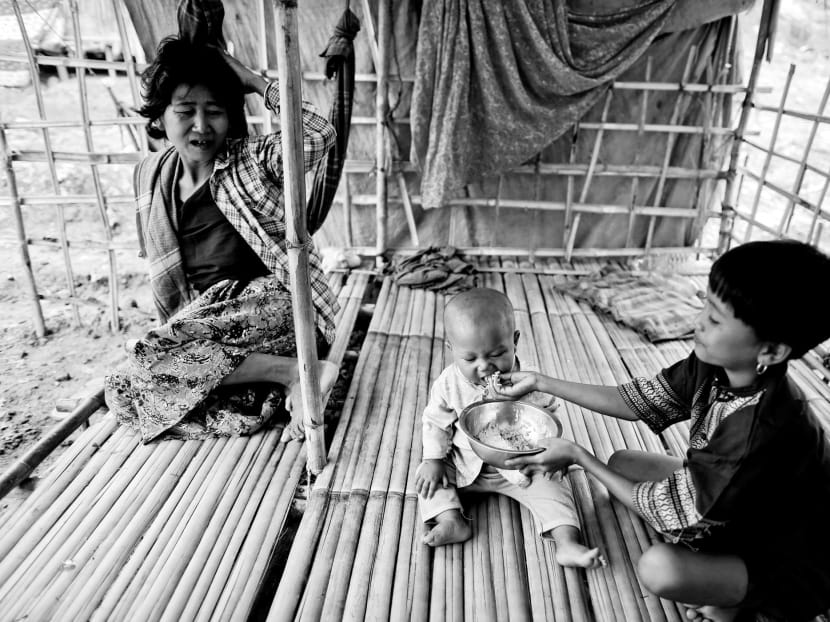Context matters when doing business
For the past two years, I have watched my home country Myanmar become a sought-after destination for foreign investors. As an expatriate from Myanmar, I have contemplated how Myanmar could strike a good balance between integration into the global economy and preserving a local identity.

In a country
as poor as Myanmar, it is also imperative that development, as much as is possible and viable, benefits everyone. PHOTO: REUTERS
For the past two years, I have watched my home country Myanmar become a sought-after destination for foreign investors. As an expatriate from Myanmar, I have contemplated how Myanmar could strike a good balance between integration into the global economy and preserving a local identity.
A recent conference provided some insights into how this could be achieved. The theme was: When doing business internationally, the context matters. As I listened to the keynote speaker, Professor Klaus Meyer of the China Europe International Business School in Shanghai, the message that international business managers have to pay detailed attention to the different levels of context struck a chord with me.
Calling it “local context in global scene”, Prof Meyer identified different geographic levels of institutional context — regional, country and sub-country levels, and global-spanning supranational level, such as the World Trade Organization.
Then, there are contextual variations within a country, such as its history, indigenous people, ethnic composition, internal conflicts and social divides.
All of this is a reminder that history, social difference and geography matter — obvious in many ways, but sometimes overlooked in the theory and practice of business strategy and decision-making.
I wondered how well, in this respect, foreign investors were currently doing in Myanmar. The country has attracted an unprecedented level of interest from international businesses and organisations.
Some are keen to join in a race to reintegrate Myanmar with the rest of the world, while others are looking to tap opportunities as the economy globalises rapidly, making up for lost time. Many expats in Myanmar talk about how much work still has to be done for the country to catch up with the rest of the world.
Myanmar people themselves are also acutely aware that they have a lot to learn. Many people I have met in Myanmar, from government bureaucrats to businessmen, have spoken of the need for “international expertise” and “ideas from outside”.
However, I am acutely aware that too much reliance on knowledge flow from “outside” can be a double-edged sword. Lagging behind may have its pros and cons.
While Myanmar missed out on economic and industrial development for decades, the positives are that the country kept its cultural values.
PRESERVING CULTURE
It is now apparent that some aspects of the Myanmar culture are changing. One small example is the greeting “Mingalarbar”, delivered with raised hands, which is now used to greet tourists. Traditionally, it used to be confined to greeting teachers at school.
Outside school, such a greeting would have been considered too formal and inappropriate. It still strikes me as awkward and artificial every time I hear it in a hotel.
How much, then, do foreign investors or even international organisations know, understand and appreciate the local issues specific to Myanmar’s politics, history, culture, religion, social composition and so on?
To what extent do they consider these issues in making sensitive decisions and strategy?
I was reminded of the fate of colonial-era buildings, especially in the Yangon area, which has generated much discussion.
Some argue for the preservation and restoration of the buildings, while others have little regard for their Victorian splendour.
This issue has to be handled with considerable sensitivity and thought in a country which is experiencing rapid urbanisation.
Restoring these run-down buildings into magnificent hotels for wealthy tourists has to be balanced against other priorities, such as public access and meeting housing needs.
In a country as poor as Myanmar, it is also imperative that the society be inclusive and that development, as much as is possible and viable, benefits everyone.
Perhaps the Myanmar people should learn from Singapore. When we were in Singapore recently, our Singaporean friend proudly showed us around the Marina Bay Sands development and pointed out that as posh as the hotel and shopping mall are, there is a food court at the basement where visitors could eat at more reasonable prices.
Last month when I visited Singapore again, I was pleasantly surprised to discover that at Gardens by the Bay, visitors could eat local specialities at affordable prices.
Adapting these ideas to Myanmar would mean a mixed-use approach where the general public still has some access to its historical buildings, gardens and other public spaces.
Investors and developers should also be mindful of the historical significance and context of colonial-era buildings, which means that converting all of them into exclusive enclaves for foreign tourists to sip cafe latte under magnificently restored chandeliers may not be the most appropriate use.
This does not mean advocating complete localisation or a lack of willingness to adapt appropriately.
In an age of globalisation, an extreme approach would not be realistic or effective. At the other end of the spectrum, as Prof Meyer put it in his plenary speech, a “one size fits all universalist approach is also unlikely to work” and integrating both for a balanced approach is likely to be the best strategy.
ABOUT THE AUTHOR:
Htwe Htwe Thein is a senior lecturer in International Business, Curtin Business School, Curtin University, Western Australia.






